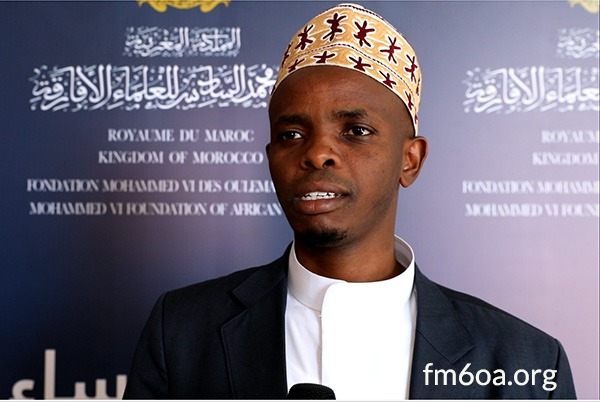Musa Sindayiga : Morocco, a Model of Enshrining Values of Moderate Islam in the World and in Africa – Rwandan Religious Preacher

Therefore, Sheikh Musa Sindayiga stressed that since the accession of His Majesty King Mohammed VI to the Throne, Morocco has embarked on a multidimensional and a proactive strategy that carries the primary objective of safeguarding the religious identity of Moroccans and protecting the Kingdom from the spread of extremist ideas and of any political or ideological recovery of the religion.
For him, this innovative approach aims primarily at protecting an assertively plural society that feeds itself from the principles of openness, of modernity and tolerance, while remaining attentive to the need of preserving the authentic and the spiritual features that have been distinguishing Morocco during the Concert of Nations, centuries ago.
Within the framework of this cutting-edge approach and thanks to the enlightened Royal vision, Morocco allows a prominent place for the establishment of an efficient framework for religious education, which aims to protect the religious heritage of the Kingdom that is founded on the Commandment of the Faithful, the Ash’arite Doctrine, the Malekite rite and Sunni Sufism, he explained.
Sheikh Musa Sindyiga indeed highlighted the reformative dynamism, undertaken by Morocco, that enabled it to stand out as a model in terms governing the religious field, to such an extent that countries in Europe and sub-Saharan Africa have recognized the relevance of the Moroccan strategy in this.
As an example, Sheikh Musa Sindyiga cited the Mohammed VI Institute for the Training of Imams Morchidines and Morchidates, which has welcomed, since its creation in 2015, a total of 1,463 preachers from the Sahel, the ECOWAS, Gabon and Chad. They have all benefited from a solid training in religious sciences that allowed them to be able to answer all questions and correct all the terms.
For Sheikh Musa Sindyiga, these daring efforts have gained new impetus with the creation of the Mohammed VI Foundation of African Oulema, as a body that considers the particularities of geographic links, the historical ties, the scientific substrates and the back-to-back spiritual sensitivities shared between Morocco and a number of African countries and the religious and the doctrinal constants.
There exists a number of major initiatives that show the continuous commitment of His Majesty the King, as Commander of the faithful, to the promotion of the values of Islam in particular, such as the the construction of mosques in several African countries, the establishment of the Institute of African Studies and the organization of Conferences on the Sufi Tarika.
In order to portray how far Morocco has played a major role in promoting intercultural and an interreligious dialogue in multilateral forums, it was on Morocco’s initiative that the United Nations General Assembly adopted, in July 2019, a resolution on the promotion of interreligious dialogue and tolerance in the context of fighting against Hate speech. This series of initiatives is in line with the spirit of the Founding Speech that His Majesty The King had delivered, in April 2004, concerning the reconstruction of the religious field in Morocco.
MAP
